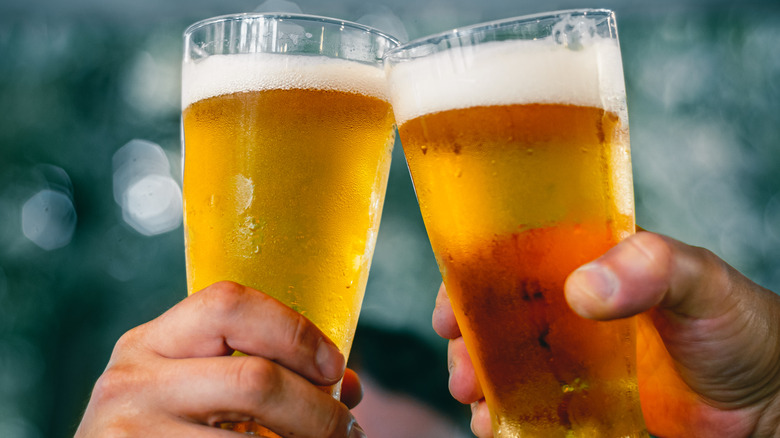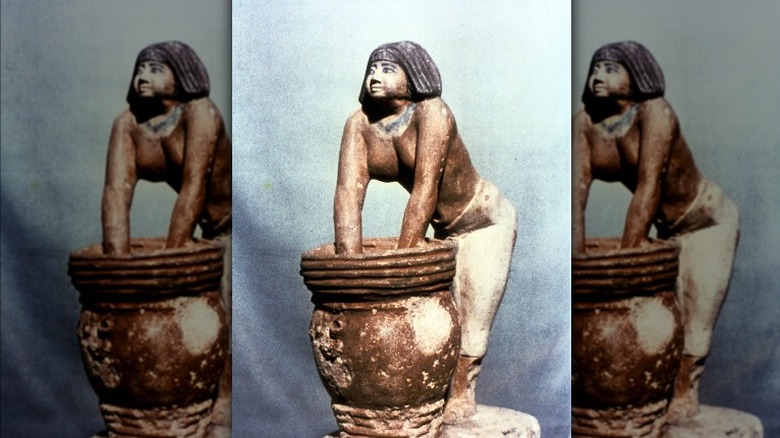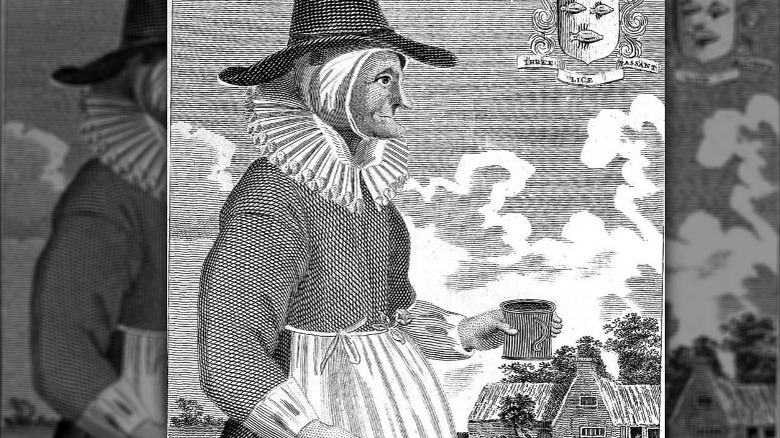The World Should Thank Women For The Creation Of Beer
Beer has been around for many centuries, going back as far as the Pharaohs of Ancient Egypt. Granted, while the people of ancient times didn't exactly have the luxury of going down to the basement fridge and pulling a can from a 12-pack of Pabst Blue Ribbon the same way we do today, this isn't to say that civilizations and cultures before us didn't enjoy a nice mug of frothy beer as a cause for celebration.
The first peoples who are widely credited to have discovered and refined the brewing process are the ancient Sumerians, Babylonians, and Assyrians, though it is not uncommon for the ancient Egyptians to be documented with a surprising knowledge of beer-making. Many consider the ancient Egyptian culture for inventing what would be the first "modern-day" beer, or at least the beer that we're more familiar with than the beer of the ancient Babylonian peoples. Egyptian culture celebrated beer for a variety of reasons, ranging from religious festivals to beer being viewed as a symbol of great wealth and power. It's similar to going into a mansion and finding bottles of vintage wines in the cellar. Some ancient Egyptian nobles were even buried with vases of beer as a symbol of their enormous fortune.
The women in these ancient societies, however, played a key role in the production of beer. What exactly did these ancient women do and what roles did they play in the production of one of mankind's oldest drinks?
Brewing was seen an activity for women
Throughout history, you'll notice that many cultures — ancient and modern — believe that certain tasks or rituals should be regulated to women. These include taking care of the home, caring for children or family members, or serving as priestesses. But what one may not have expected to find was that brewing, at one point, was seen as a task practiced chiefly by women.
Women in societies such as Ancient Egypt were usually involved in the beer-making processes as brewers. Unlike today, where brewing beer is handled by machinery, brewing at home wasn't too uncommon and, like most household tasks and chores, these activities were mainly performed by women. The ancient Egyptian people even had their own goddess of beer named Menqet. Over time, however, women went from merely taking part in the brewing process to operating their own taverns and establishments. Beer was a popular, cheap drink and anyone, be they man or woman, could easily make a profit by selling their wares.
As time went on, and the ancient world moved into the beginning of the Middle Ages, these types of women became known as "alewives," wearing tall hats and using cats to keep their grain safe from mice. Some even believe that the image of an alewife evolved into the stereotypical image of a witch, complete with the cauldron, long hat, broom, and menacing pet cat.
But how and when did women stop being associated with brewing altogether?
Why are women no longer associated with brewing beer?
The reason for women leaving the beer industry is up for debate. Some may argue that the Reformation of the 1500s played a part in removing women from the industry, while others believe changing attitudes towards women and their duties meant women were regulated to the home. After all, if a woman's main job was to care for children and keep the home safe, why did they need to focus on things like brewing and selling ale?
Another reason for the shift of women out of the industry may also be tied to the Church of that time. Many clergymen and religious officials were against the idea of taverns and alehouses, viewing them as breeding grounds for all manner of sin. Some even viewed the women who ran and operated these alehouses as "seductresses," who lured men into their alehouses to spend money, get drunk, and commit sins ranging from gluttony to lust. As the idea of women running houses of sin gained popularity, women began to withdraw or be removed from the beer industry to save their reputations.
The Industrial Revolution also helped to move the brewing process from the home to the factory. As it was much more efficient to produce beer on a wider scale using new technology, home brewers could no longer find a foothold in the market.
The next time you have a cold one, remember all the men — and women! — who helped make it possible.


